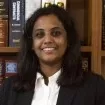- within Litigation and Mediation & Arbitration topic(s)
The Kerala High Court (HC), in Hareesh M.S. case,1 observed that Sexual Harassment of Women at Workplace (Prevention, Prohibition and Redressal) Act, 2013 (Act) will apply only when there is an allegation of sexual harassment.
Brief Facts
Hareesh M.S. (HMS), a manager at Kerala State Financial Enterprises Limited (KSFEL), Thiruvananthapuram, challenged the Internal Committee (IC) proceedings initiated against him (Notice).
The situation arose after HMS issued memos to eight junior female staff members for not meeting chitty canvassing targets.
The woman complainant (Complainant), along with political union members, allegedly forcibly entered HMS's office cabin and misbehaved with him. HMS filed police complaint regarding this incident.
Following this, the Complainant filed a complaint with the IC, alleging that HMS tried to record her with his mobile camera and used obscene language.
HC's Judgement and Reasoning
The HC observed that:
- The complaint did not include any allegations constituting sexual harassment as defined by the Act, such as physical contact, demands for sexual favours, making sexually-coloured remarks, or unwelcome physical, verbal, or non-verbal conduct of a sexual nature.2
- The Complainant is not an employee of the KSFEL branch where HMS worked and had allegedly entered his cabin without permission.
- The jurisdictional basis for taking cognizance of the complaint under the Act was absent.3
Consequently, the HC set aside the Notice and allowed the writ petition.4
Comment
This judgment highlights the importance of adhering to the requirements of the Act when addressing a complaint of sexual harassment. It underscores that aspect that not all complaints of misbehaviour or insult can fall within the purview of the Act. The IC's jurisdiction is limited to cases involving complaints of 'sexual harassment' as defined in the Act.
Footnotes
1. Hareesh M. S. v The Kerala State Financial Enterprises Ltd. and Others, 2025 LiveLaw (Ker) 113.
2. Paragraph 11 of the Judgement.
3. Paragraph 14 of the Judgement.
4. Ibid.
Originally published February 24, 2025
The content of this article is intended to provide a general guide to the subject matter. Specialist advice should be sought about your specific circumstances.


